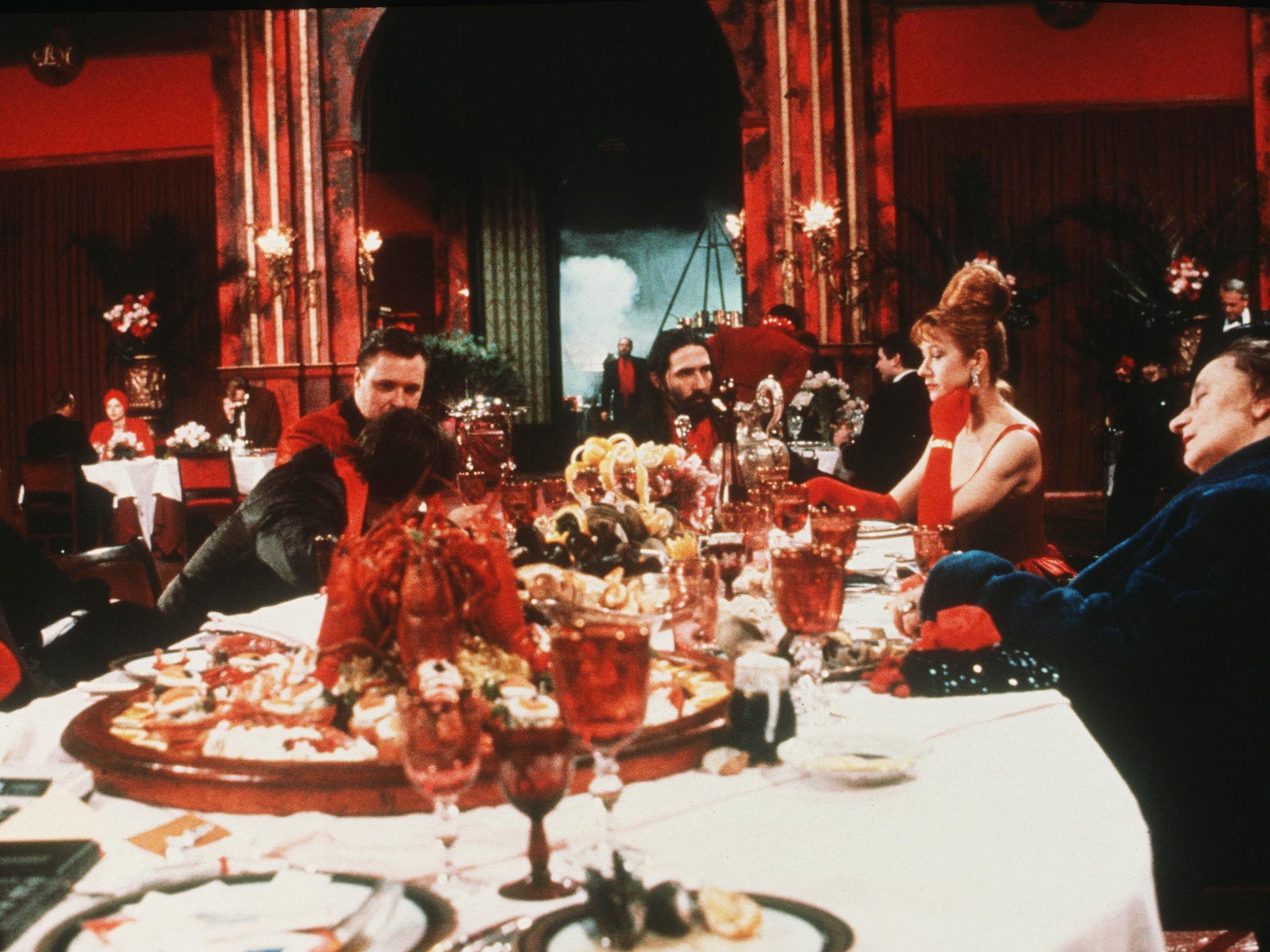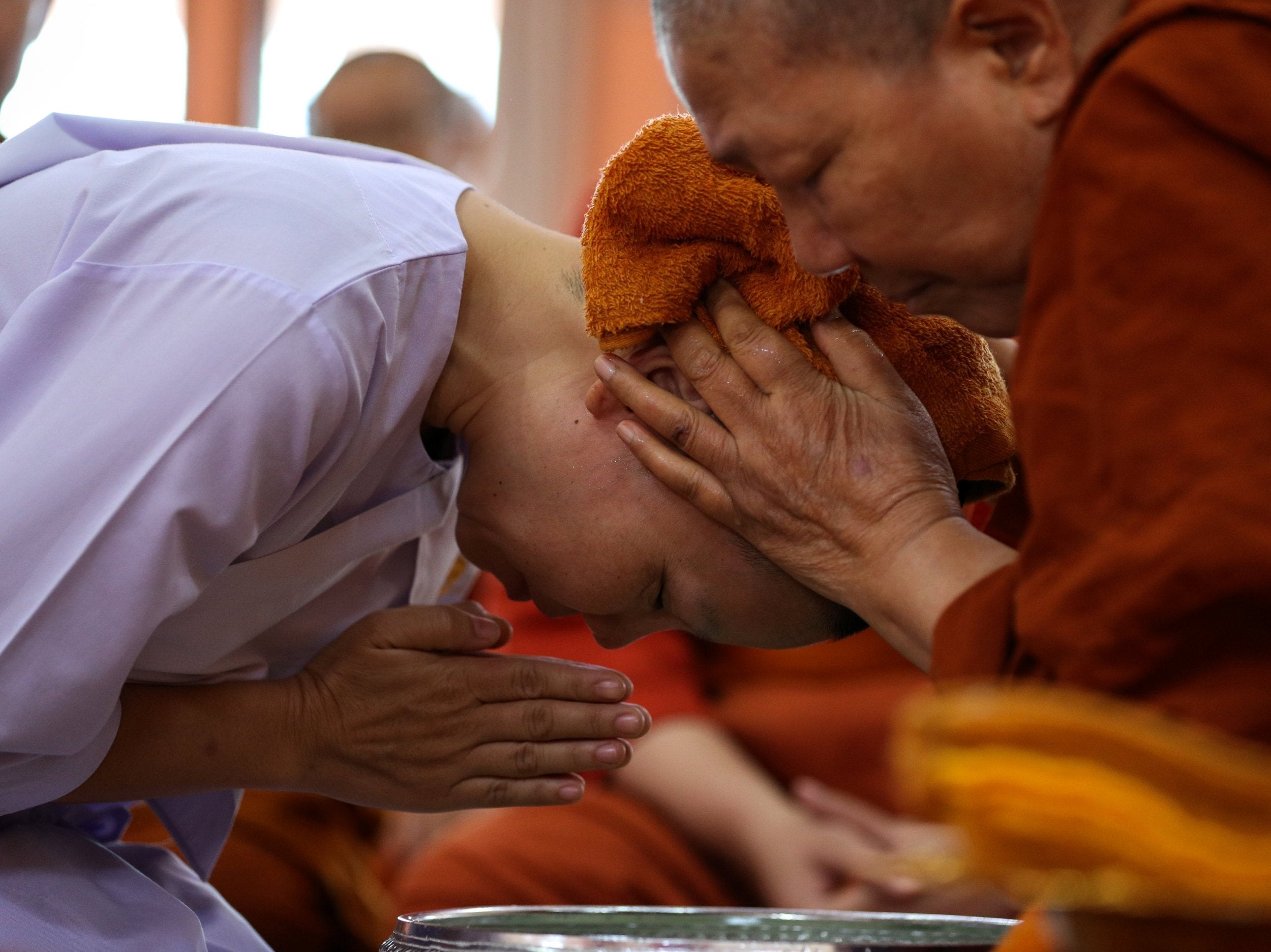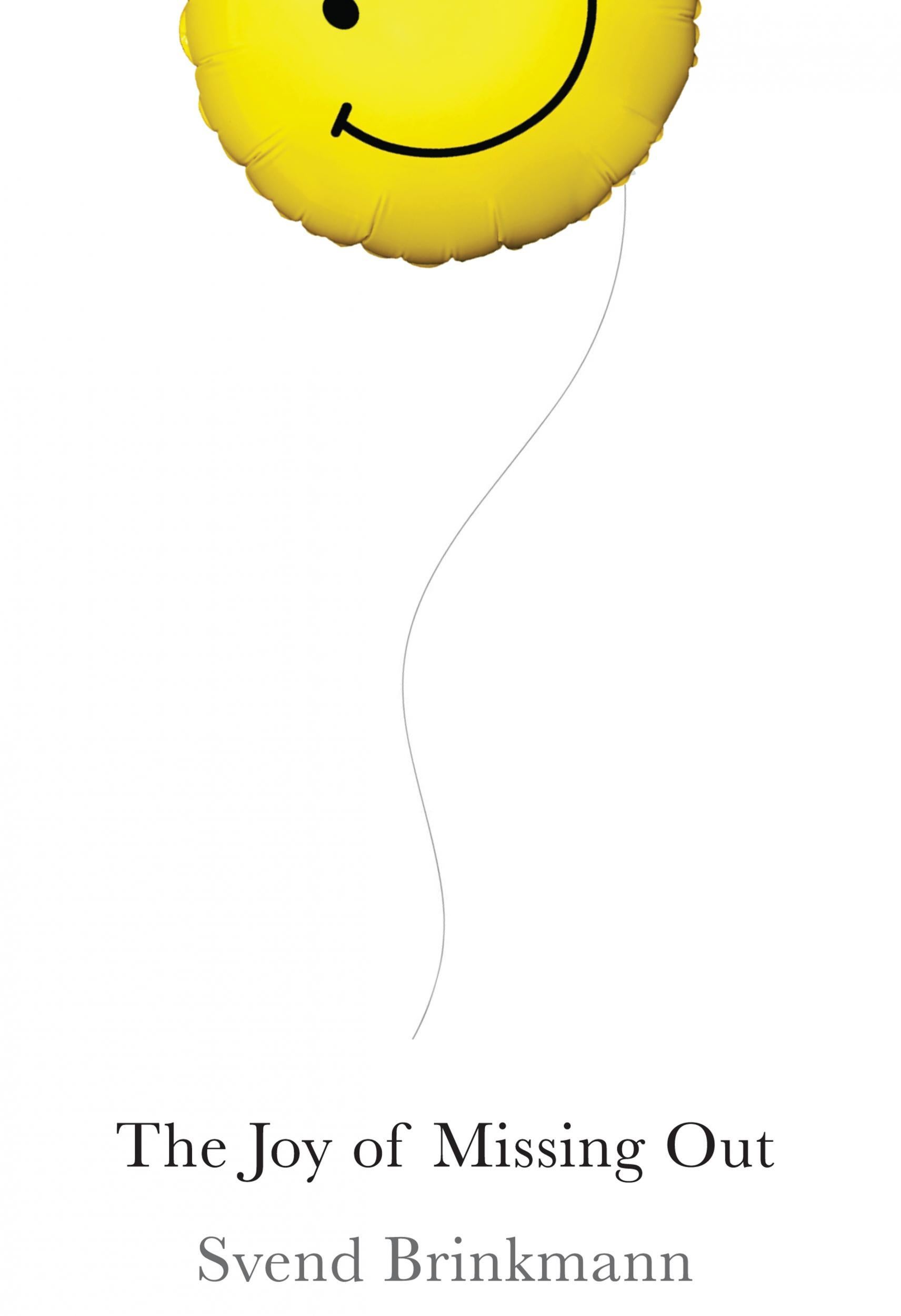Jomo, or the joy of missing out: Embrace it, we can’t all be a part of everything
There are two tragedies in life: not getting what you want, and getting it. But embracing the former can truly help us when consumption is the status quo, says Andy Martin


Here’s a chocolate for you. One of your favourites. The one with the nut in. Fancy it? But, hold on, rather than having that one right now, how about if you exercise self-control for let’s say, 15 minutes, and then you can have two of them. What would you do? Choc in the hand or two in the bush?
It’s a classic psychological experiment, first performed back in the Sixties, by Walter Mischel at Stanford University, using Oreos or marshmallows. The subjects were pre-school kids. It was designed to test and measure your willpower, or at least willingness to defer. Mischel described in detail all the techniques the kids used to try to distract themselves from the tempting treat, which was right in front of them all the time – covering their eyes with their hands, humming or fidgeting. Some managed to hold out, others not.
But the experiment only really sprang to fame much later, when the researchers revisited the same children, now grown up, and discovered a clear correlation between the results of the first test and their later achievements in life. For example, the longer you were able to delay gratification of your desires at pre-school, the higher your score in SAT tests (the university entrance qualification in the US). Maybe not surprisingly, “high delayers” early on were less prone to obesity further down the line. And they had greater self-esteem.
Self-help gurus were quick to jump on the results and tease out of them a simple rule: only teach your kids to hold back on the Oreos and you can engineer the perfect child/adult, thus spawning books such as Don’t Eat the Marshmallow… Yet! The Secret to Sweet Success in Work and Life. Abstemiousness as the path to health and wealth and wisdom. Without actually experimenting on my own children, I’ve certainly witnessed the fundamental decision-making process at close quarters. Wife: “Are you sure you need that extra chocolate?” Seven-year old son (after giving the matter serious thought): “I want to need it.” (As a matter of fact, he chose not to have it).
We are constantly invited, encouraged, pressured to consume (be it chocolates or whatever). Can you hold out? As Oscar Wilde said, I can resist anything except temptation. But if you could resist that too, wouldn’t that strength of will be a tremendous asset not to mention supreme virtue? But, as astute Danish psychologist Svend Brinkmann points out in his brilliant and restrained short book The Joy of Missing Out: The Art of Self-Restraint in an Age of Excess, matters are not as simple as they might appear at first glance.
Consider that first experiment. Say you do succumb. You can still become a perfectly fit, decent human being. You’re not doomed. The stats don’t apply to every individual. On the other hand, if you do hold out, you still end up eating double the amount of chocolate anyway. So perhaps you turn into a major chocoholic. More significantly, your choices in that situation are shaped by a host of other factors (family background, environment, diet and so on) which will have an impact on you further down the road. So to take a kid and apply a rule about delaying gratification is no kind of magic wand. It’s more like magical thinking.
But having made all those very reasonable qualifications, Brinkmann is still in favour of Jomo, the joy of missing out, in opposition to the dreaded and seemingly inescapable Fomo. Isn’t everyone else having more fun than I am? Every day, we are bombarded with slogans telling us not to miss out on practically anything. Just Do It! Because you’re worth it (no matter what “it” is). The quintessential form of all these messages is encapsulated in the definition of success offered by “life-coach” Tony Robbins: doing “what you want, when you want it, with whom you want it, as much as you want it”. Again, “it” is anything and everything, it excludes nothing.

Of course, you are reasonably going to “need” (as opposed to “want”, to make my son’s distinction) to satisfy a certain minimum of basic requirements, just to stay alive. How long are going to go without a glass of water? Oxygen would come in handy too. And so on. But the paradox of doing-it and getting-it is that satisfaction generates increased dissatisfaction and you only end up wanting more. More is the non-stop throbbing imperative at the heart of consumer society. Keep on bingeing, keep on streaming. But as Mick Jagger pointed out: “You can’t always get what you want.”
Not only is life finite, but you have to go down certain roads that are going to leave other roads untravelled
There are two tragedies in life: one is not getting what you want, the other is getting it. And maybe the second is more painful. It was thinking along these lines that inspired me to come up with a concept which nobody likes: the zerotic ie carnal abstinence, a certain monastic or ascetic attitude. It used to be a rule in football: no sex the night before the Big Match. That way you’d play better. I’m not sure anyone in the Premiership takes that seriously any more, but Freud for one elevated “sublimation” into an entire theory of civilisation, which is only possible if you (like the kids with the Oreos) defer gratification and channel all that libidinal energy into other undertakings, like building bridges and roads and composing symphonies. I once tried to explain the theory to a surfer friend, suggesting it could help his surfing. He considered for a while and then said: “No, I’ve tried that and it doesn’t work.” He remained resolutely attached to the pleasure principle.
The anti-Tony Robbins line: don’t do it! never seems to go down that well with anyone who is feeling frustrated in life. But at least we all admit there is an aesthetics of omission. Do you want your house to be permanently cluttered? That’s just hoarding. Do you really need to write like Marcel Proust all the time? Often enough a short sentence will do. There is Baroque and Rococo, and then there is plain and austere. I’d probably rather sit on a wooden Shaker chair than a Louis XIV sofa. Why eat a gateau when all you need is a slice of toast? You’ll only feel stuffed. Sometimes simple is beautiful. I’m a minimalist tending in the direction of subtracting rather than adding. One of the most ingenious novels ever written is A Void by Georges Perec (translated by Gilbert Adair), which entirely leaves out the letter E (and is therefore, technically, a lipogram). No “he”, no “she”, no “they” either. Awkward. But all the more powerful an evocation of a sense of loss. One of those times when less really is more.
How about “I haven’t been there, I haven’t done it!” as a T-shirt slogan? It probably won’t catch on, but it would reflect an underlying truth about life. Not only is it finite, but you have to go down certain roads that are going to leave other roads untravelled. Sad but true, and it is on account of that deficit that we have imaginations to make up for it. If you really could do it, see it, have it etc, why would you even need to imagine it? You’d be nothing but a sensory machine, deprived of yearning. Fiction would die. And talking of which, I can’t help but wonder if the very popularity of the “multiverse” in television shows such as The Man in the High Castle (Philip K Dick) and Westworld (Michael Crichton) – the concept of parallel universes beloved of quantum physicists – has endeared itself to our minds on account of our reluctance to accept not doing, not being, not seeing. With the multiverse there are no hard choices because you know that in the universe next door you can do the very thing you didn’t do in this one. You can be what you aren’t. Love and be loved by the very person you just dumped.
But, argues Svend Brinkmann, if you try to do everything it means you can’t really focus on anything. You have to exclude; delete options; stop trying to reinvent yourself. When he was younger, Brinkmann’s grandmother gave him a poem, signed by the poet, Piet Hein, which he has taken to heart. “You shouldn’t want it all… Choose just one path and be as one with it. Other paths must wait… Finiteness is the very thing that makes it all worthwhile.”
Brinkmann has a good sense of humour about everything he is missing out on, as I discover when I call him at Aalborg University where he teaches. I wonder whether his self-imposed austerity regime makes him unbearable to live with. “I can be unbearable,” he says. But he reckons that if he tends to err in one direction (more puritanical) his wife tends to err in the opposite direction so that they even out as a couple. “I don’t want to recommend the ascetic life. No one should have to be a yogi or a monk if they don’t want to be. Too little is as bad as too much.” He considers himself a champion of “moderation”, a virtue he associates with Aristotle. “Missing out is not a goal itself – it’s about being able to focus on the important things, the things you really care about, and not being distracted by all the noise.”
Maybe you shouldn’t live the dream. Dream the dream instead. Live your life, as it comes. Dreams, translated, are invariably disappointing
One thing I discovered talking to Brinkmann is that the Danish phrase is “a bird in the hand is worth 10 on the roof”. “And sometimes one is all you need,” he says. “Why struggle to get more?” The original title of his book in Danish is GA GLIP, literally “MISS OUT”. It’s an imperative but normally in Danish the verb would require another preposition and an object (ga glip af something, so you would miss out on, say, another helping of chips or another hunk of cake). So he is missing out the grammar. But now his phrase has caught on in Denmark anyway. “Even if I haven’t changed people’s lives,” says Brinkmann, “at least I’ve changed the Danish language a tiny bit.”
He believes that more Jomo can make an impact on inequality and obesity and climate change, and enable you to attend to all the fun stuff in life you generally forget about. But he accepts that his work will annoy as many people as it pleases. He expects critics to suggest that readers can always miss out reading his book. “I should have those words on my gravestone and then everyone can gather around and laugh because now I’m really missing out – on life – and they aren’t.” He is relaxed about that though. He knows that finiteness is the thing that makes it all worthwhile. “We forget about the importance of what we don’t do. This is what our dreams are for.”
I’m living the dream. One of those phrases that always strikes an odd note to my ear, as if the person saying it doesn’t really believe it and you won’t be that surprised if it all goes pear-shaped fairly soon. Maybe you shouldn’t live the dream. Dream the dream instead. Live your life, as it comes. Dreams, translated, are invariably disappointing.

All the years I was growing up my father fantasised about one thing: owning a classic Morgan sports car – racing green – and driving it through uncrowded country roads with the hood down and his hair blowing in the wind. He’d always fancied one ever since he was a kid. Finally, when he was into his sixties, he bought one (second-hand). He drove it once and sold it again. In reality, it was too much trouble. But the dream itself was immortal and I still see him (in my own dreams) driving through the countryside with the sun shining down and the wind in his hair.
Andy Martin is the author of ‘Reacher Said Nothing: Lee Child and the Making of Make Me’. He teaches at the University of Cambridge. Svend Binkmann’s ‘The Joy of Missing Out: the Art of Self-Restraint in an Age of Excess’ is published by Polity
Join our commenting forum
Join thought-provoking conversations, follow other Independent readers and see their replies
Comments
Bookmark popover
Removed from bookmarks